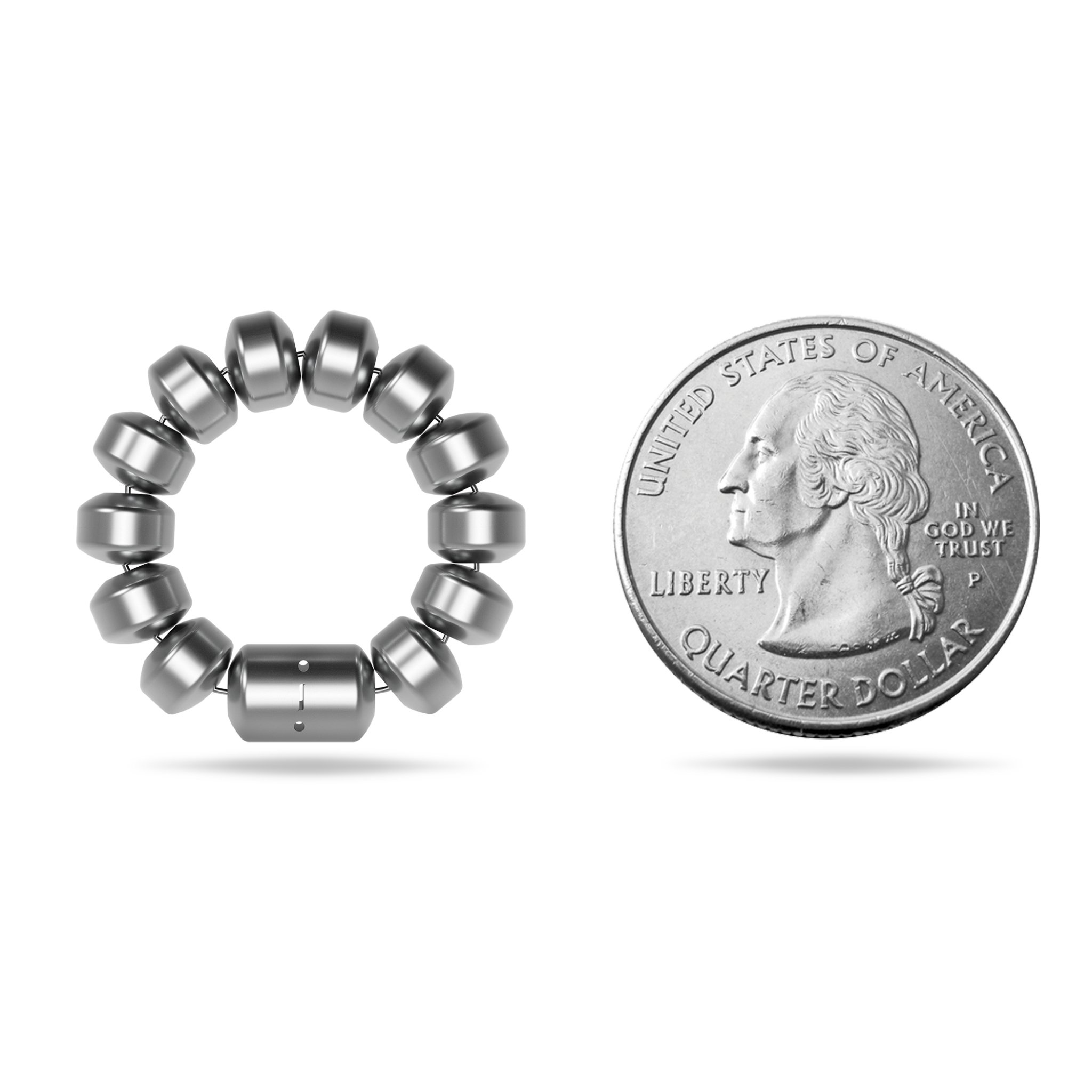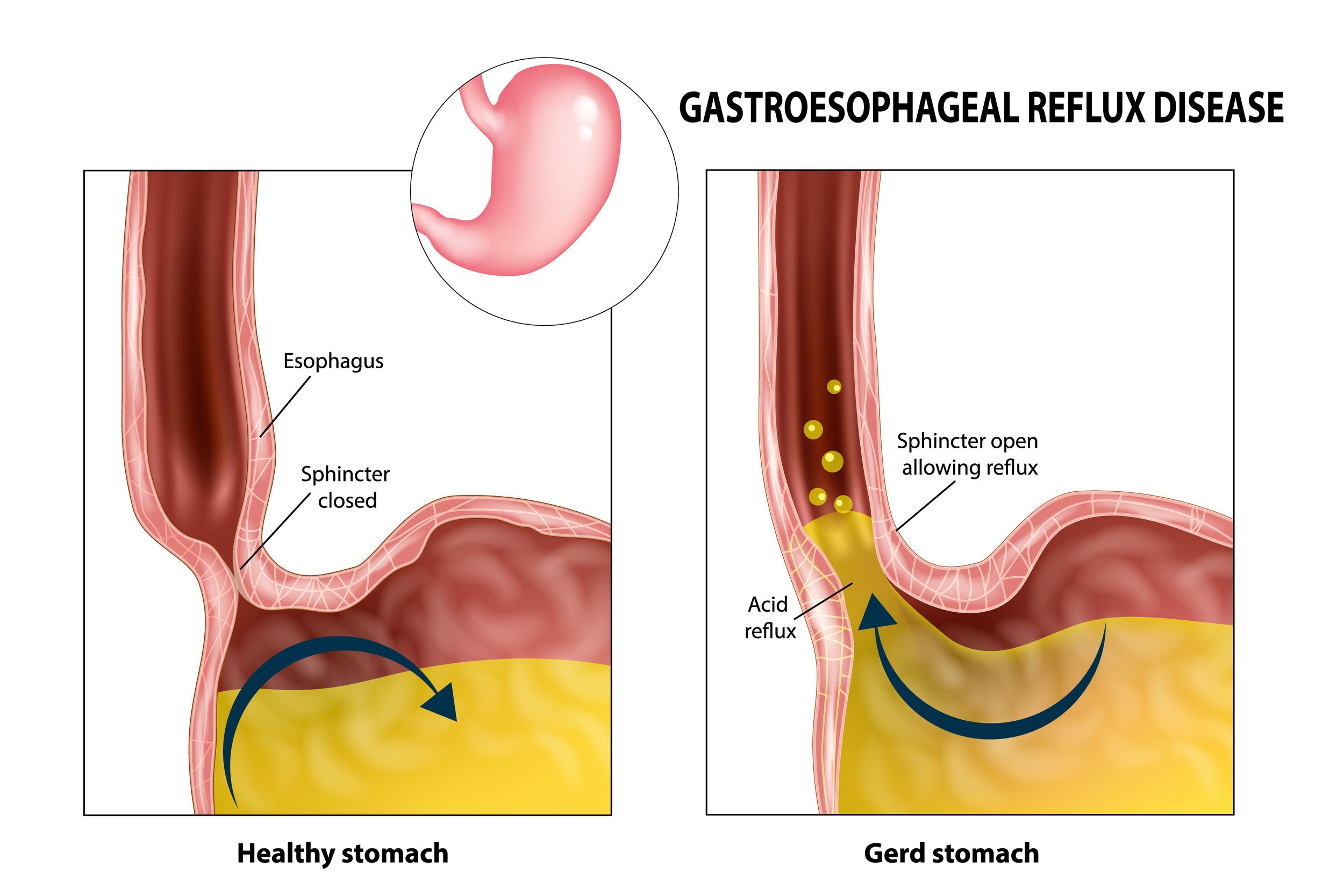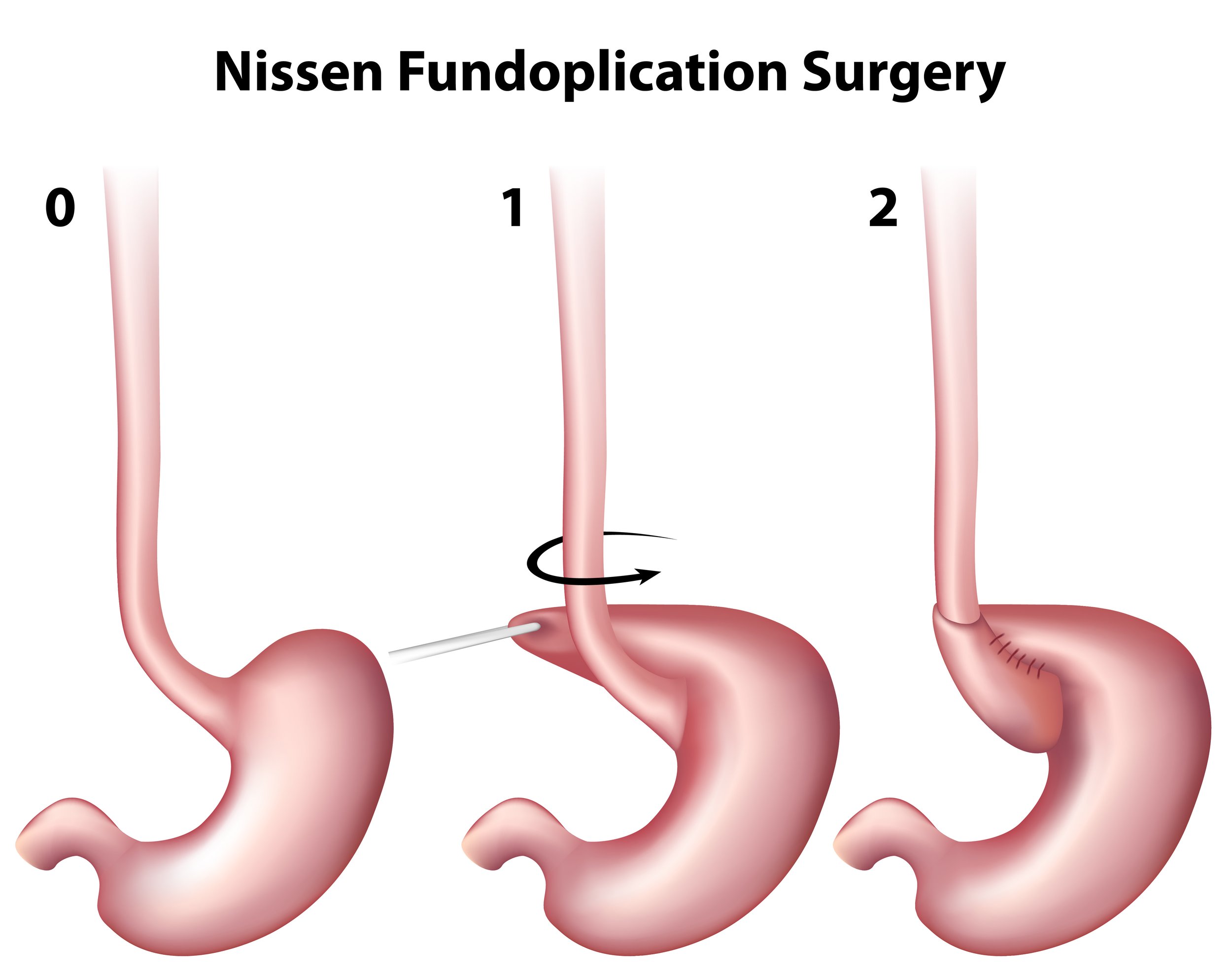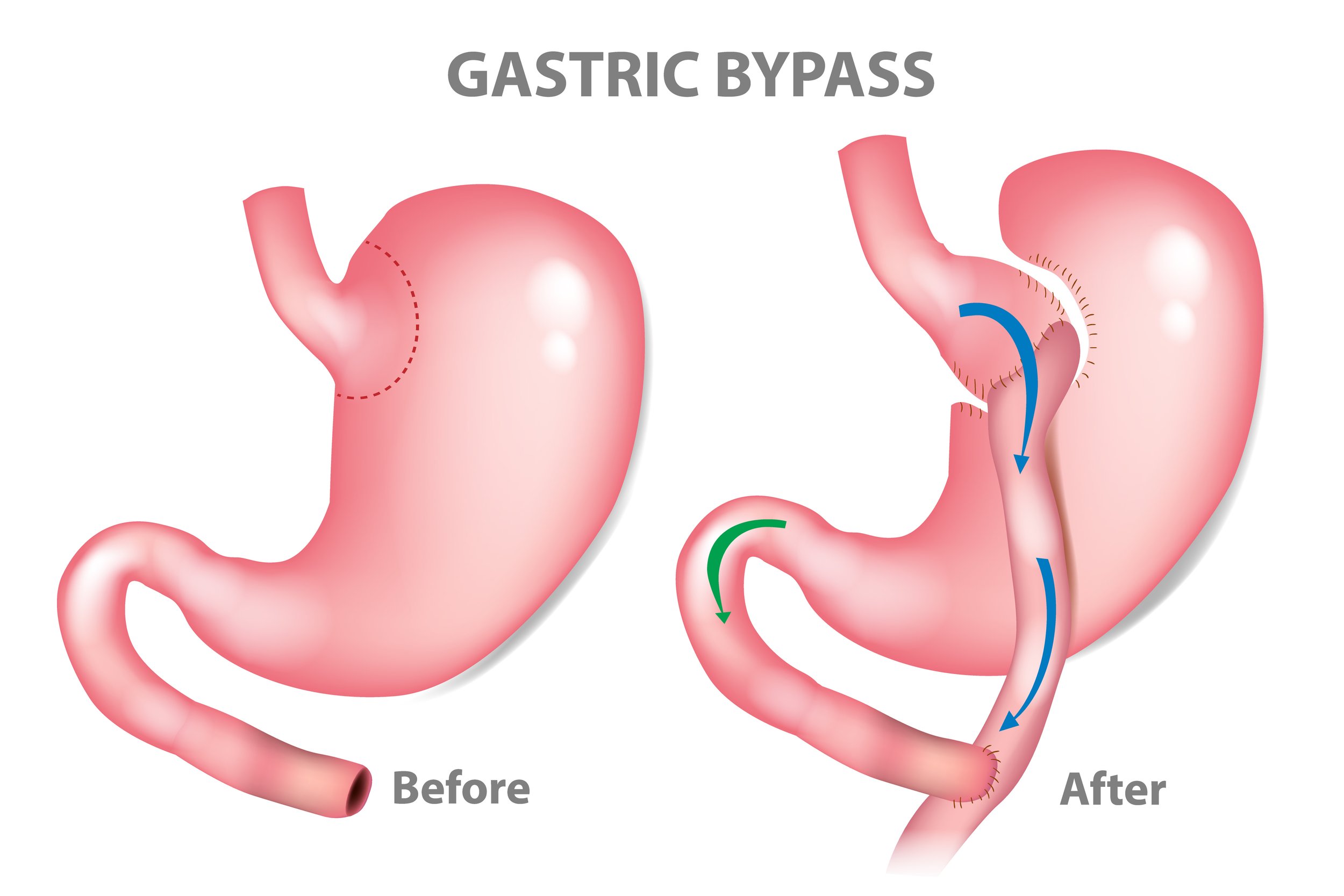
Surgery for Reflux
Struggle with acid reflux? You are not alone. In fact, at least 1 out of 5 Americans suffer from Gastroesophageal Reflux Disease (GERD).
Surgery may be an option.

What is Gastroesophageal Reflux Disease (GERD)?
Failure of the LES
The esophagus transitions to the stomach just below the level of the diaphragm. The lower esophageal sphincter (LES) is a valve that naturally relaxes to allow food into the stomach, but contracts to prevent stomach contents from returning to the esophagus. If this valve fails, stomach acid can enter the esophagus and cause symptoms.
Hiatal hernia
A hiatal hernia occurs when the stomach herniates through the diaphragm and into the chest. This is the most common anatomic cause for the lower esophageal sphincter to fail. Many patient’s are tied down by their hiatal hernia for years and get frustrated by constant medication adjustments. This can be easily remedied with an operation.
When considering surgery, your surgeon may order tests to determine whether a hiatal hernia is present and to ensure that your esophagus is functioning properly. This workup can provide guidance on which operation may be right for you.
Read on to learn more about your surgical options.
Fundoplication
A fundoplication or “wrap” is considered the traditional approach to reflux surgery. This includes the Nissen and the Toupet. These procedures are performed with a minimally invasive technique. Most patients are discharged same day or day after surgery.
Roux en Y Gastric Bypass
No, you didn’t accidentally click on the bariatric section! Believe it or not, the gastric bypass is an excellent operation for reflux. This procedure is typically reserved for obese patients, but can be offered to patients with any BMI, particularly if they have already failed a different reflux procedure.
Magnetic Sphincter Augmentation
The LINX® procedure is a newer technology that uses a ring of magnetized beads to recreate your lower esophageal sphincter, or “reflux valve”. This can be placed as an outpatient procedure.




Why should you consider surgery?
-

Freedom from medication
Proton pump inhibitors are excellent for symptom control by reducing the acidity of your reflux. Unfortunately, they do nothing to reduce the frequency of reflux episodes, which may lead to ongoing damage to the esophagus.
85-90% of patients who undergo surgery are off of their reflux medications at 5 year check up. -

Barrett's esophagus
Chronic damage to the esophagus can lead to changes in its lining called metaplasia or Barrett’s esophagus. This condition increases the risk of developing cancer by a factor of 40! Controlling the reflux can halt progression of Barrett’s esophagus and help decrease the changes of developing esophageal cancer.
-

Innovation
All procedures are performed using a robotic approach. Experience less pain and enjoy a faster recovery. Rest assured that your surgery will be performed with the most up to date technology available.




